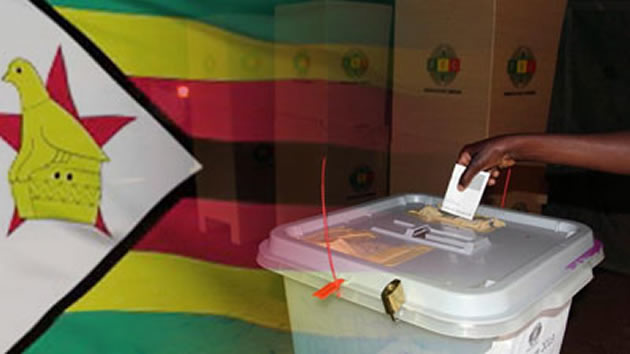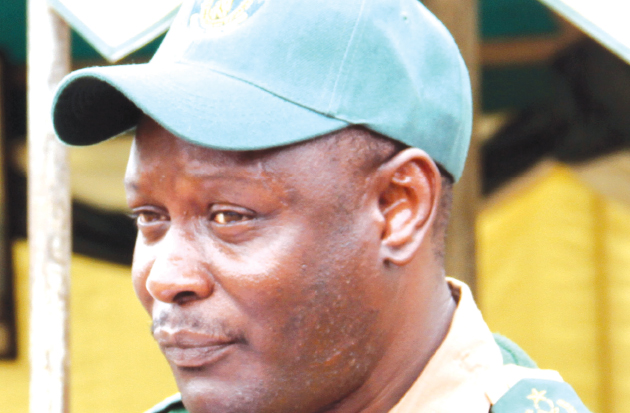ZEC free to use voters’ roll: Court

 Daniel Nemukuyu Senior Court Reporter
Daniel Nemukuyu Senior Court Reporter
The Zimbabwe Electoral Commission has unfettered discretion to use or not to use the voters’ rolls compiled by the Registrar General because there is no law compelling the commission to craft a new register from scratch, the Electoral Court has ruled.
Justice Chinembiri made the remarks in a case in which ZAPU leader Dr Dumiso Dabengwa was seeking to compel ZEC to craft its own voters’ rolls without relying on previous ones compiled by the Registrar General of Voters.
Dr Dabengwa also wanted ZEC to immediately take over from the Registrar-General’s Office duties such as registering voters, compiling its own voters’ rolls, keeping and maintaining voters’ rolls and ensuring that the public has access to inspecting the voters’ rolls as provided for in terms of the supreme law of the country.
Justice Bhunu partially granted an order sought by Dr Dabengwa and directed ZEC, to forthwith discharge its mandate in accordance with the available resources.
He made the order after ZEC admitted that since August 2013, it had not been carrying out its mandatory obligations in terms of the Constitution due to limited resources.
Justice Bhunu’s order reads:
“It is accordingly ordered that the Zimbabwe Electoral Commission shall forthwith discharge its constitutional and statutory functions in a way it deems best suited for the purpose and within the scope and confines of the available resources.
“Each party has been partially successful, there shall be no order as to costs,” ruled Justice Bhunu.
In a landmark judgment that is set to save Government of over $150 million in crafting an entire new voters’ roll, Justice Bhunu said he went through the whole Constitution and it does not bar ZEC from using or improving on an already existing voters’ roll.
“I have carefully gone through the Constitution and the relevant legislation and I have not found anywhere, where the law requires the commission to compile entirely new voters’ rolls without reference to previous voters’ rolls compiled by the by the then Registrar General of Voters.
“In short the lawmaker has not prescribed any such mode of compilation of the voters’ roll.
“Had the legislator sought to prohibit the commission from relying on previous voters’ rolls compiled by the then Registrar General, it would certainly have said so in clear and unambiguous terms,” said Justice Bhunu.
The judge said ZEC had unfettered discretion to use the old voters’ roll, develop it or not to use it at all.
“It is a basic tenet of our law that what is not prohibited is permissible at law.
“That being the case, the commission is at large and has an unfettered discretion to use or not to use previous voters’ rolls in its registration and compilation of current voters’ rolls . . .”
Justice Bhunu also understood ZEC’s challenges in implementing carrying out its mandate and directed that the commission should carry out its function in accordance with the available resources.
“The commission has also raised the defence that it does not have adequate resources to carry out its mandate.
“While it might be so, one is obliged to cut his garment according to his cloth.
“What this means is that the commission is obliged to carry out its constitutional function in accordance with the available resources.
“It is an established principle of our legal system that the law does not compel the impossible.
“The commission will not be expected to carry out functions beyond what is feasible within the confines of available resources,” he said.
Dr Dabengwa wanted ZEC to immediately take over duties of voter registration and maintaining voters’ rolls and registers in line with the new Constitution.
He wanted ZEC to comply with the law providing the interested public with soft or hard copies of the voters’ roll on request.
It was Dr Dabengwa’s argument that in the 2013 election, Section 6(2) of Part 3 of the Sixth Schedule of the Constitution gave the Registrar of Voters authority to perform some of the election duties under the supervision of ZEC, but the future elections should now be conducted in terms of Section 239(c) of the new Constitution.
Since August 10 2013 when Section 239(c) became operative, Dr Dabengwa argued, ZEC had not yet complied with the law.










Comments